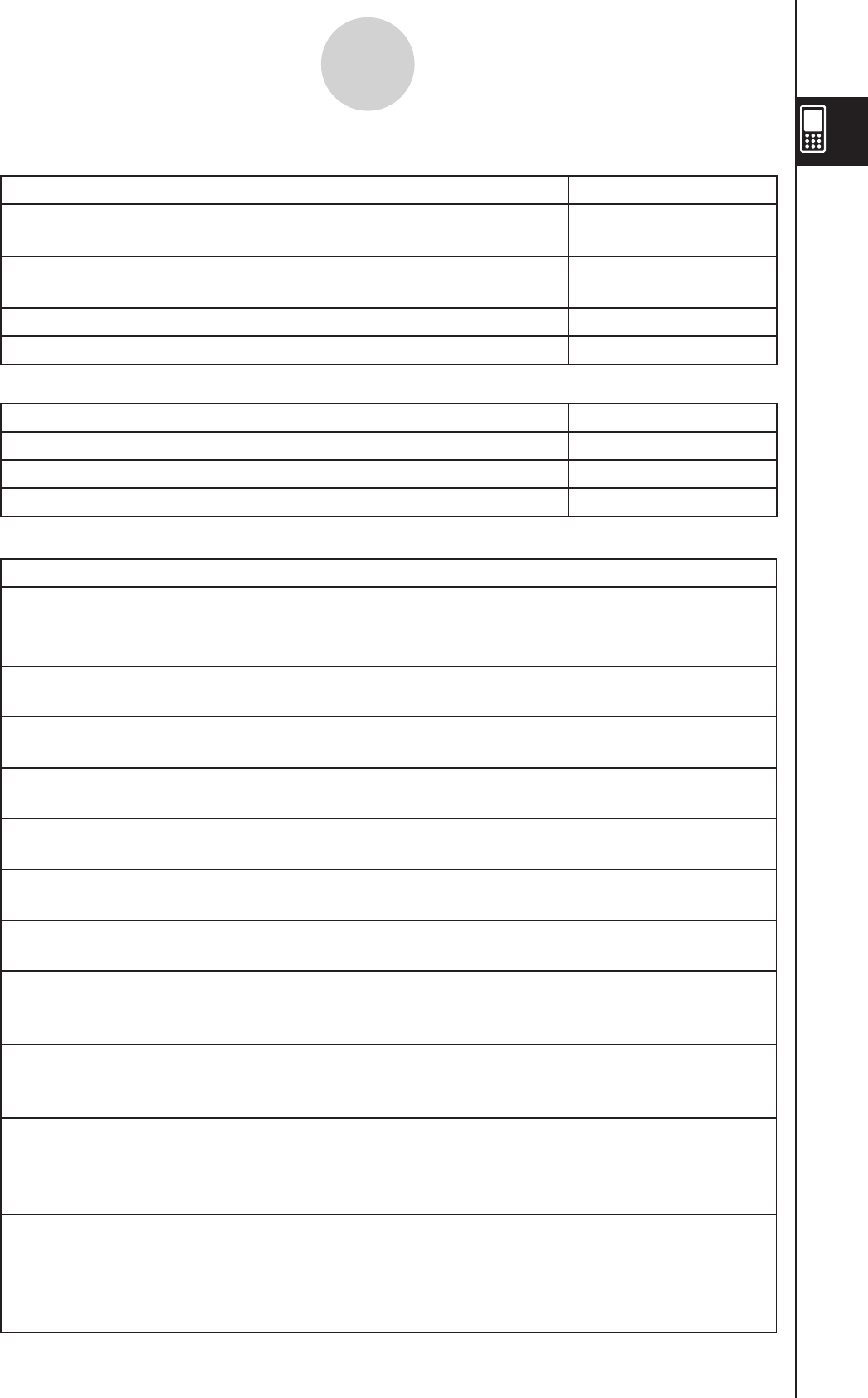
20101001
1-9-5
Configuring Application Format Settings
u
Number Format
To specify this type of numeric value display format: Select this setting:
Auto exponential display for values less than 10
–2
and from 10
10
or greater (when you are in the Decimal mode)
Normal 1*
Auto exponential display for values less than 10
–9
and from 10
10
or greater (when you are in the Decimal mode)
Normal 2
Fixed number of decimal places Fix 0 – 9
Fixed number of significant digits Sci 0 – 9
u
Angle
To specify this angle unit: Select this setting:
Radians Radian*
Degrees Degree
Grad Grad
u
Advanced
To do this: Do this:
Perform complex number calculations
(Complex mode)
Select the [Complex Format] check
box.
Perform real number calculations (Real mode) Clear the [Complex Format] check box.*
Display results as a decimal (Decimal mode)
*1
Select the [Decimal Calculation]
check box.
Leave calculation results as expressions
(Standard mode)
*1
Clear the [Decimal Calculation]
check box.*
Turn off auto simplification of expressions
(Assistant mode)
*2
Select the [Assistant] check box.
Turn on auto simplification of expressions
(Algebra mode)
*2
Clear the [Assistant] check box.*
Specify descending order (e.g.
x
2
+
x
+ 1) for
the calculation result expression
Select the [Descending Order]
check box.*
Specify ascending order (e.g. 1 +
x
+
x
2
) for
the calculation result expression
Clear the [Descending Order] check box.
Specify that variables in Complex Mode
calculation should be treated as real numbers
• With this setting, re(
a
+
bi
)=a and im(
a
+
bi
)=b.
Select the [Variable is Real] check box.
Specify that variables in Complex Mode
calculation should be treated as complex
numbers
Clear the [Variable is Real] check box.*
Divide total population on its center point
between upper and lower groups, with the
median of the lower group Q1 and the median
of the upper group Q3
Select the [Q1, Q3 on Data] check box.
Make the value of element whose cumulative
frequency ratio is greater than 1/4 and nearest
to 1/4 Q1 and the value of element whose
cumulative frequency ratio is greater than 3/4
and nearest to 3/4 Q3
Clear the [Q1, Q3 on Data] check box.*


















